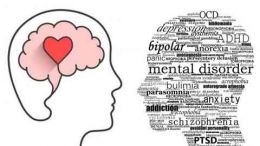Generation Z, the cohort born between 1997 and 2012, is growing up in a world marked by increased stress and anxiety. With alarming rates of depression, anxiety, and suicidal thoughts, the mental health of young people has become a pressing concern. This article delves into the challenges faced by Generation Z, explores the factors contributing to their mental health struggles, and highlights potential solutions to promote their well-being.
The Growing Mental Health Concerns
Members of Generation Z are grappling with significant mental health issues. According to the Pew Research Center, about 70% of teens across all demographics perceive anxiety and depression as major problems among their peers. Disturbingly, only 45% of Gen Zers report their mental health as very good or excellent, in contrast to other generational groups who fare better in this aspect. While Generation Z has been labeled as the most depressed generation, they are also more likely than previous generations to seek mental health counseling or therapy. Approximately 37% of Gen Zers have worked with mental health professionals, although access to care remains a challenge.
Factors Contributing to Generation Z's Mental Health Struggles
Several factors contribute to the high rates of depression, anxiety, and other mental health issues among Generation Z. Chronic stressors such as school shootings, student debt, joblessness, and political polarization have a significant impact on their well-being. Moreover, the pervasive influence of technology plays a role in exacerbating mental health problems. Growing up in a hyper-connected world can lead to feelings of isolation, loneliness, and constant exposure to negative news and unattainable social media standards. Social media platforms like Instagram have been found to have detrimental effects on the mental health of teenagers, particularly young women who experience worsened body image issues.
The Alarming Suicide Rates
Tragically, suicide rates have been on the rise among all age groups in the United States, with young people being particularly affected. A study published by the JAMA Network revealed a 30% increase in the suicide rate from 2000 to 2016. Factors contributing to the high rates of depression and suicide among youth include social media use, increased awareness and reporting of suicide as a cause of death, and the impact of discrimination based on race, ethnicity, sexual orientation, and gender identity. Suicide rates vary across genders, LGBTQ status, and racial or ethnic backgrounds, with specific groups experiencing higher rates of suicide attempts and completions.
Mental Health Disparities among Generation Z People of Color
Communities of color often face stigmatization and barriers to accessing mental health care, leading to disparities in mental health outcomes. People of color are more likely to suppress or downplay their emotions and are less likely to receive appropriate mental health care. Mental illness can be stigmatized within these communities, and the lack of culturally competent care further hinders access to services. Racial and ethnic disparities in health insurance coverage contribute to the disparities in mental health care utilization. Additionally, discrimination based on race, ethnicity, sexual orientation, and gender identity increases stress levels and exacerbates mental health challenges.
Promoting Mental Health and Well-being
Addressing the mental health crisis among Generation Z requires a multifaceted approach that encompasses various stakeholders and strategies. Increased access to mental health care is crucial, along with the integration of mental health support in schools. Efforts should focus on reducing stigma, providing culturally competent care, and addressing the specific needs of marginalized communities. Promoting resilience, coping skills, and emotional well-being through evidence-based programs is essential for preventing mental health issues and promoting positive mental health among young people. Collaborative efforts between schools, families, communities, and policymakers are necessary to create a supportive environment that fosters the well-being of Generation Z.
Generation Z's mental health crisis is further compounded by the need for anti-corruption education, especially within the senior high school curriculum. Integrating character education alongside mental health support can help young people develop resilience, ethical values, and critical thinking skills necessary to navigate the challenges they face. By equipping Generation Z with the tools and knowledge to address corruption and build strong character, we can empower them to create a positive impact on society and promote their overall well-being.
Baca konten-konten menarik Kompasiana langsung dari smartphone kamu. Follow channel WhatsApp Kompasiana sekarang di sini: https://whatsapp.com/channel/0029VaYjYaL4Spk7WflFYJ2H







